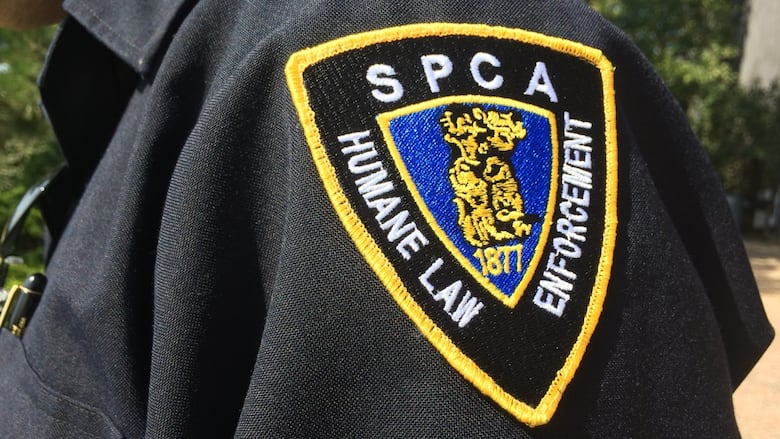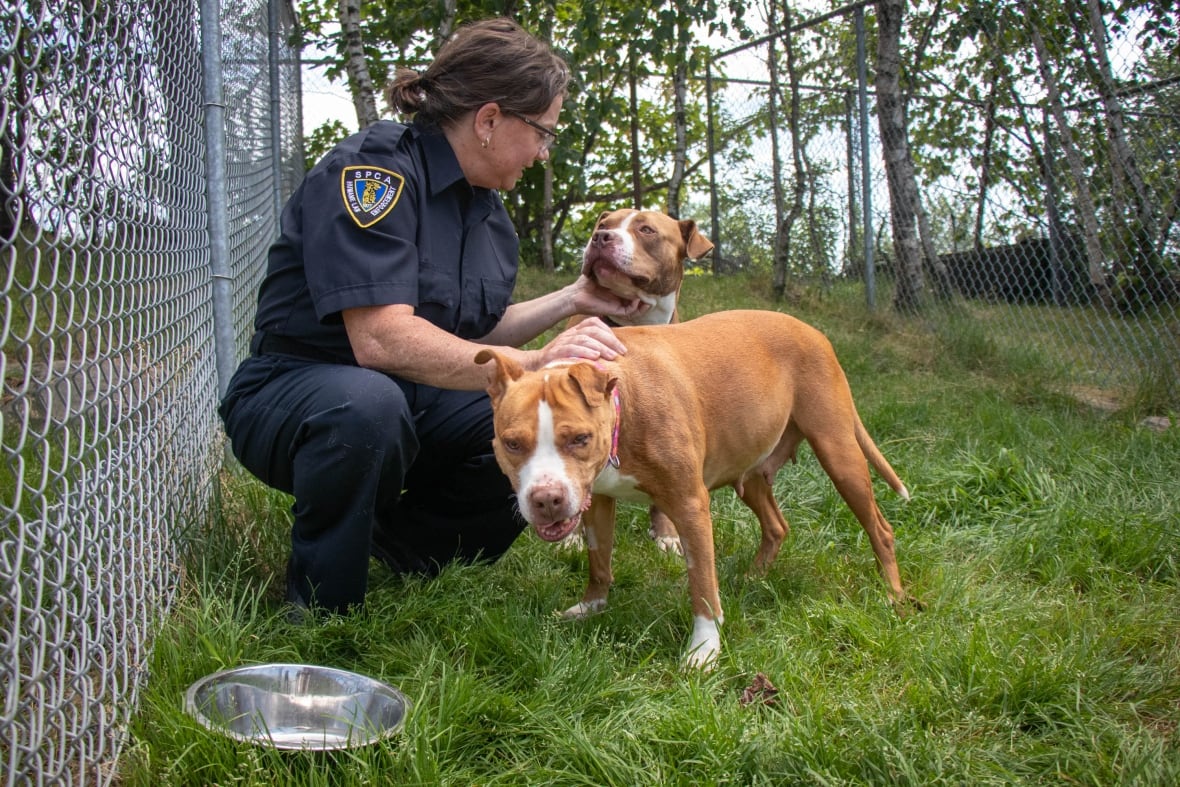N.S. SPCA cancels some municipal bylaw contracts amid staff burnout, rising costs
Charity says it must focus resources on animal protection

The Nova Scotia SPCA has cancelled half of its municipal contracts for bylaw enforcement or kennel services, saying it must focus resources on handling the rising number of surrendered animals across the province.
In March, the SPCA wrote to eight of the 16 municipalities where it provides either animal bylaw enforcement, kennel space or both, to say it would be ending those contracts.
The end date for most towns or regions was late June, while the Municipality of East Hants was given until March 2026.
Heather Woodin, chief of animal operations for the SPCA, said their special constables across the province were dealing with "burnout" as they juggled bylaw calls alongside animal protection work, such as neglected or abused animals.
"They have to choose to prioritize which case to go to first, if they have multiple priorities pulling them in different directions," Woodin said Tuesday.

"We don't necessarily want to be the service provider that is looked to, to enforce animal-related bylaws."
Animal control or dog bylaws vary by municipality across Nova Scotia, but enforcement often means responding to complaints of barking, aggressive or stray dogs, or picking up dog poop.
Woodin said the animal protection workload has increased, as the SPCA is seeing more surrendered pets from Nova Scotians who can no longer afford to care for them.
"The cost of living overall is affecting the SPCA, it's affecting the community members as well," Woodin said.
The charity is also experiencing its own rising bills, Woodin said, and more animals coming into shelters means it's hard to keep a kennel free for stray dogs picked up under bylaw enforcement.
Financial statements from the SPCA's annual reports show their budgets have more than doubled in the past few years.

In 2024, expenses hit $11.5 million with shelter operations costing $4.8 million. Back in 2020, shelter operations cost $1.9 million out of the $5.1 million total expenses.
Woodin said cancelling the municipal contracts was a "cost neutral" move to the SPCA, which helped them come to their decision. She said the overtime pay, and mileage for staff to respond to bylaw duties, added up to the point where they were not bringing in surplus revenue from the contracts.
The eight affected units are the towns of Stewiacke, Wolfville and Yarmouth, and municipalities of Pictou County, District of Argyle, District of Clare, District of Yarmouth and East Hants.
These were chosen based on an evaluation of the staff and physical resources within the six SPCA shelters across the province, Woodin said.
The impact of the change has varied across the province, with some municipalities already moving on with solutions, while others need more time.
Wolfville already has compliance staff with animal-control training, and is using a local dog rescue group for kennels as needed.
But Argyle Warden Nicole Albright said that approach is difficult for them, and they are still exploring their options.
"[In] small rural municipalities, our staff are already so overworked and you know, it's hard to throw [them] something else," Albright said.
The SPCA is supporting municipalities through the transition, Woodin said. If municipal staff need training or support from an experienced animal handler on a call, they can pay for the bylaw enforcement service as long as resources are available.
Stewiacke took this approach, as the town council decided in July to budget about $8,000 to cover the SPCA expenses until March 2026. By then, staff said, they hope to have found a solution with neighbouring East Hants.
"There are not many options out there. We will continue to look," Marc Seguin, chief administrative officer, said during the council meeting.
The eight remaining contracts are with the Halifax Regional Municipality, Cape Breton Regional Municipality, District of Antigonish, Membertou First Nation, Town of Truro, and the municipalities of Barrington, Colchester and Kings.
As of now, the SPCA has enough resources to deliver those contracts, Woodin said, and they don't have "current plans" to end them.
But, she said, they will monitor the situation to see if changes are needed in the future.

